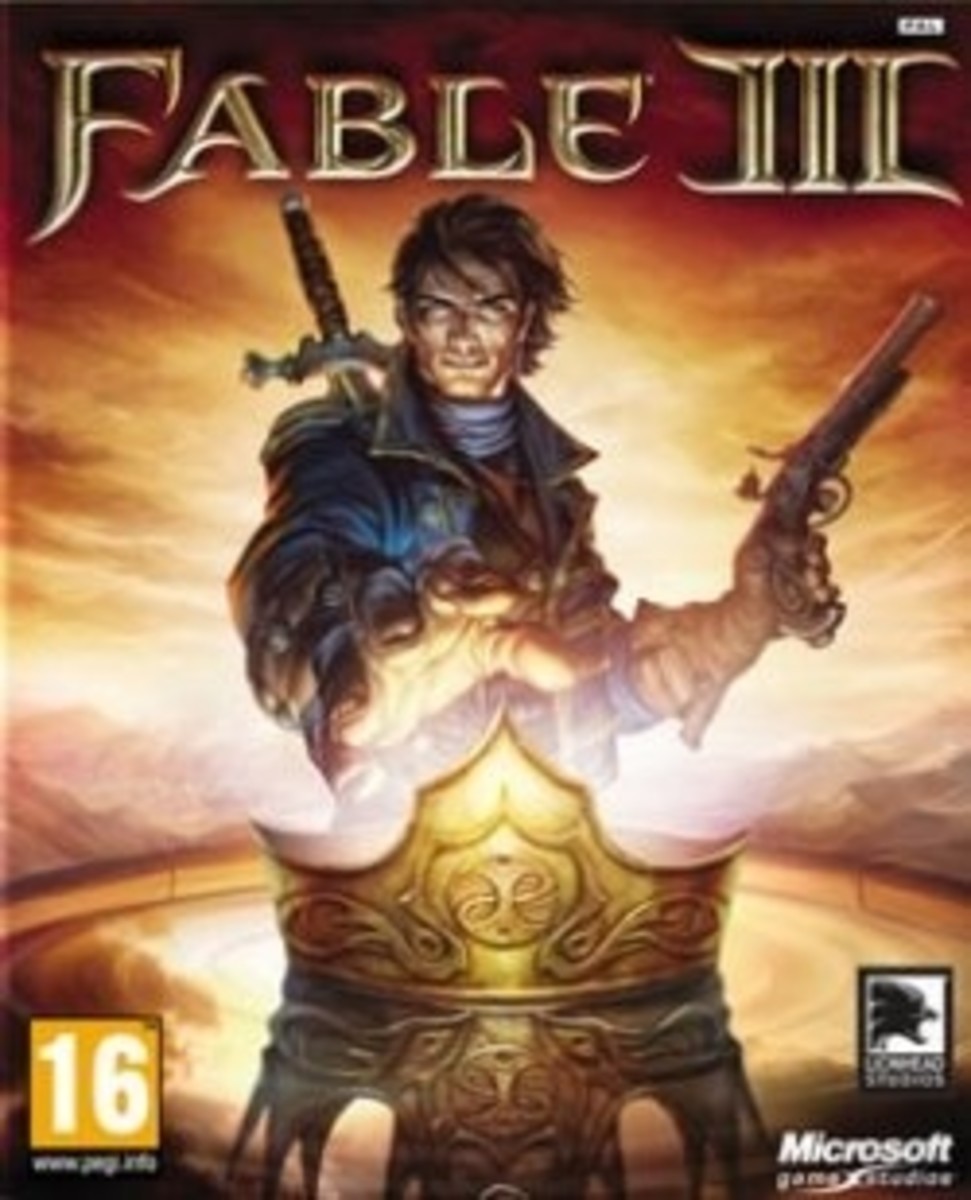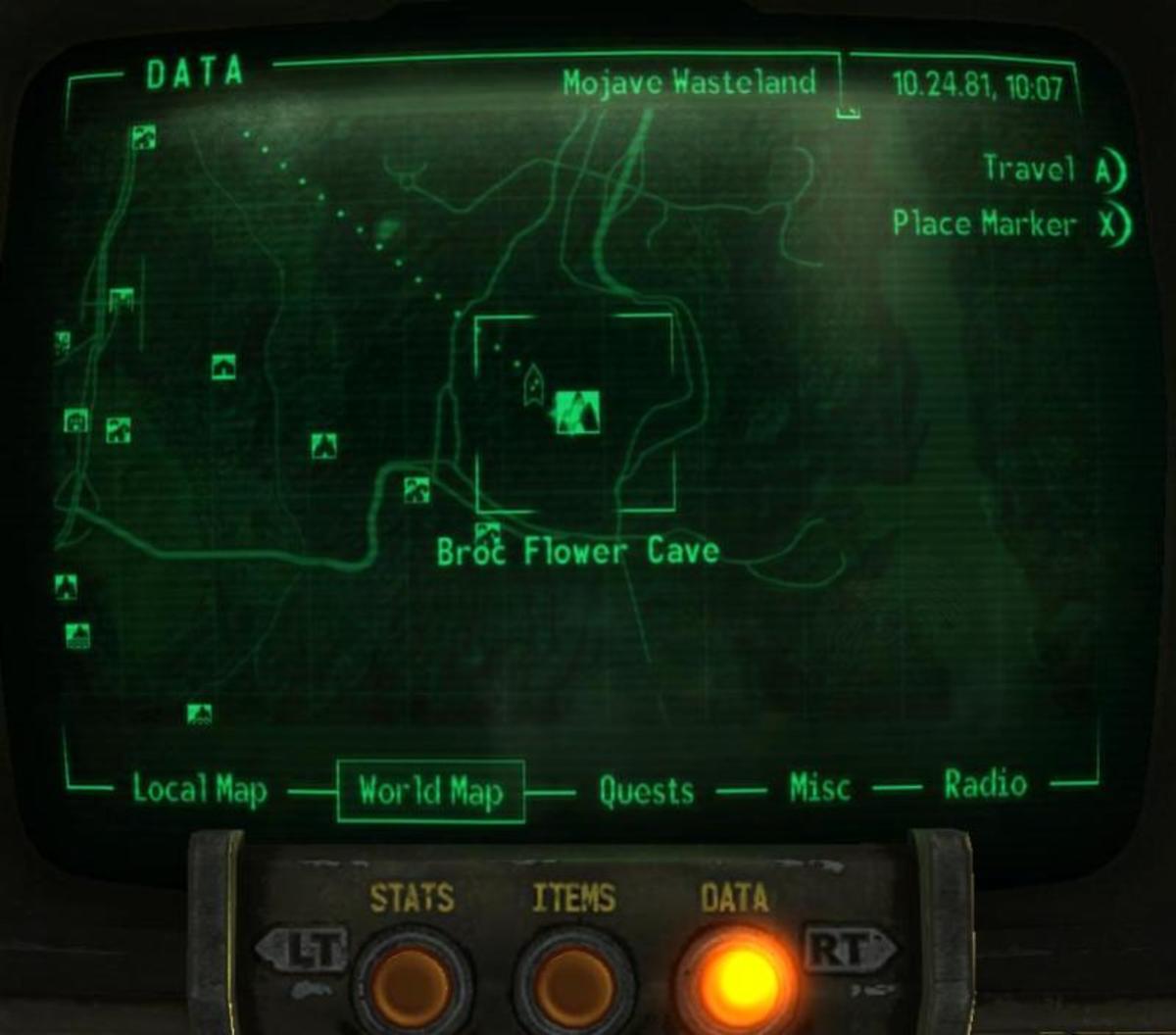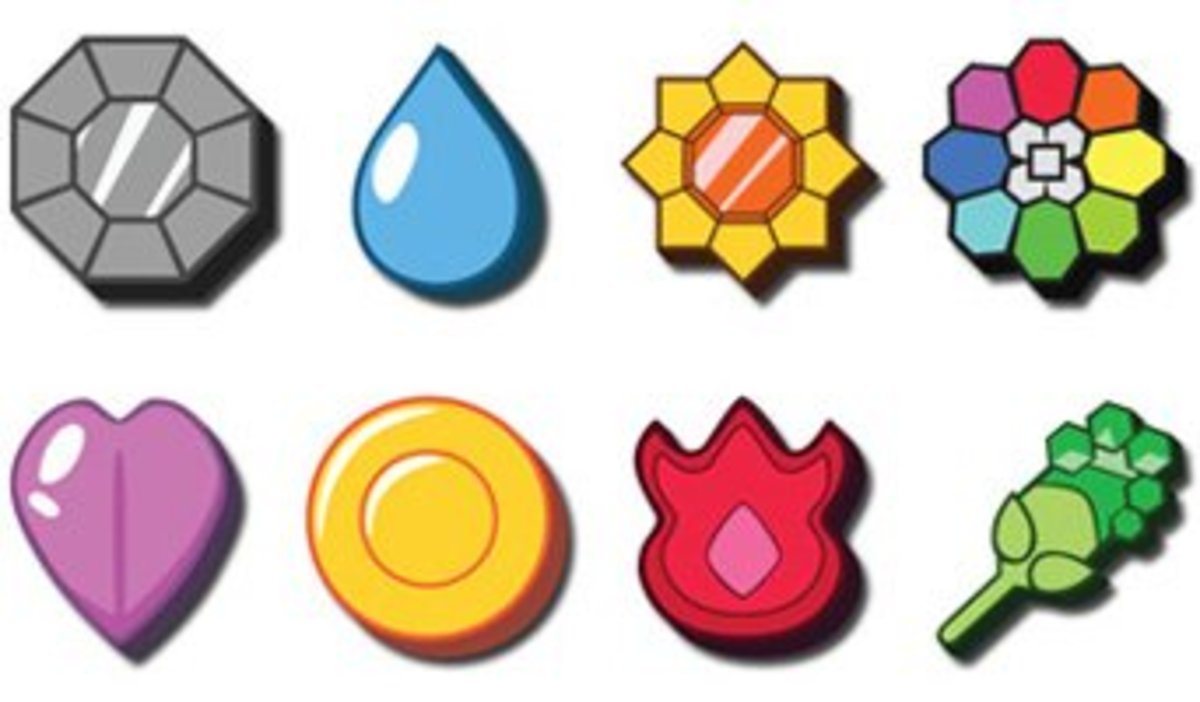Dragon Age 2 - Retrospective Review
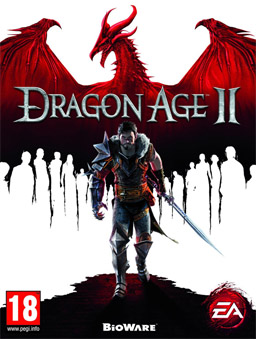
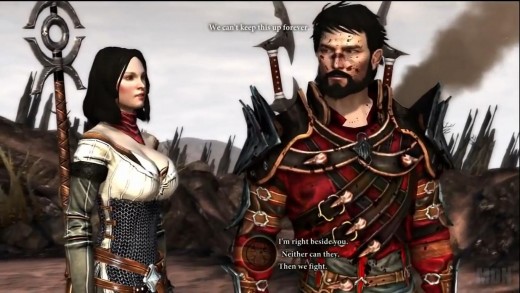
Dragon Age: Origins was Bioware's attempt at making a spiritual successor to Baldur's Gate, and, for the most part it did a pretty solid job. Fast forward only a little more than a year later and Dragon Age 2 arrived. Instead of being more of the same, Bioware had decided to change tact. Here, Dragon Age was getting the Mass Effect treatment.
From the more action-oriented combat system to the conversation wheel, Dragon Age 2's comparisons to Bioware's epic space opera were easy to see. Not only that, the game had undergone something of a style upgrade; gone were the awkward, stiffly animated mannequins with shovels for hands, and in their place were slightly less awkward character models thanks to the upgraded Lycium engine used to power the game.
Even the story had taken a radical shift. Taking place both before and then after the events of the first game, Dragon Age 2's story spanned over three acts, charting the rise of the player character, Hawke, the champion of Kirkwall. Whereas Origins had took the Lord of the Rings approach with a world-threatening horde of evil, Dragon Age 2's adversaries are far more intimate and small-scale in comparison.

Bioware instead opt for a more Game of Thrones feel, with plenty of politicking and potential backstabbing going on, whether that be between the mages and templars, or the appearance of a group of ship-wrecked Qunari who don't take kindly to human, elf or dwarf culture...
Despite being a fairly solid reinvention for the series, even if it did alienate fans of the original somewhat, the real issue with Dragon Age 2 came from that development time. Put together in just over a year, the game's rushed assembly can be keenly felt. Dungeons are repeated endless times throughout the game, with different areas opened up or bolted off to give the illusion that you're somewhere new. Even the design of Kirkwall is done in such a way that Bioware could reuse the same elements for each of the game's three acts.
Likewise, while the shift to a more dynamic combat system isn't bad in and of itself, there's plenty of parts of it that to this day, seem scrappy and incomplete. A "combo" system allows the game's three different classes (Warrior, Mage and Rogue) to work together to score more damage. An ice spell from a mage, for example, could cause enemies to become brittle, a status effect that only warriors could exploit.
In practise however, this system never really went anywhere, and it was perfectly possible to make your way through the game without ever utilising it whatsoever. Unfortunately, this led to many areas being nothing more than button-mashing fests, as you bashed away with the attack button while occasionally swapping over to harness one your skills.
Here again there was evidence of the game's rushed design. Stat upgrades appeared to be nothing more than window dressing this time around, with each of the game's three classes each needing only two of the game's six stats: warriors needed strength and constitution, while rogue's could happily plug all their points into dexterity and cunning to increase their critical hit output, knowing that the other options were essentially worthless to them.
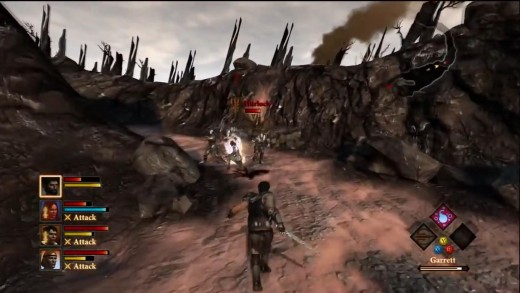

The game's saving grace, somewhat at least, is its plot. Each of the game's three acts revolves around a different plot line, again, creating comparisons to a TV series. Act two's encounter with the Qunari is perhaps the best written, with plenty of ways for the player character to affect the outcome, likewise the opening of act three, which sets up an all out war between the mages and the templars, is also suitably dramatic, allowing players to choose between supporting the dogmatic templars or the mages set on starting a revolution.
Sadly, Dragon Age 2's short development even manages to infect this part of the game. After building up to an exciting climax the game's end is summed up in a few sentences, a montage and a voice over by one of your companions. It's an incredibly shoddy way of bringing a game to a close, especially one that places so much emphasis on its story.
With a longer development and some more love and affection, Dragon Age 2 could have potentially been the series' Mass Effect 2. Instead it's an incredibly uneven middle chapter that seems more interested in setting up future games than it does creating its own story. It's likely that a lot of the buck stops with EA on this one and is just one more example, amongst a string of others, of the giant publisher opting to make a quick bit of cash, as opposed to creating a quality title.
With Dragon Age: Inquisition just around the corner, Bioware at last have the chance to turn around the series' less than stellar history. Both Origins and its sequel have provided the developer with plenty of experience as to what works and what doesn't. Let's just hope that this third instalment finally does their ideas justice.
Dragon Age 2 was released in 2011 for the 360, PS3 and PC.
© 2014 LudoLogic

